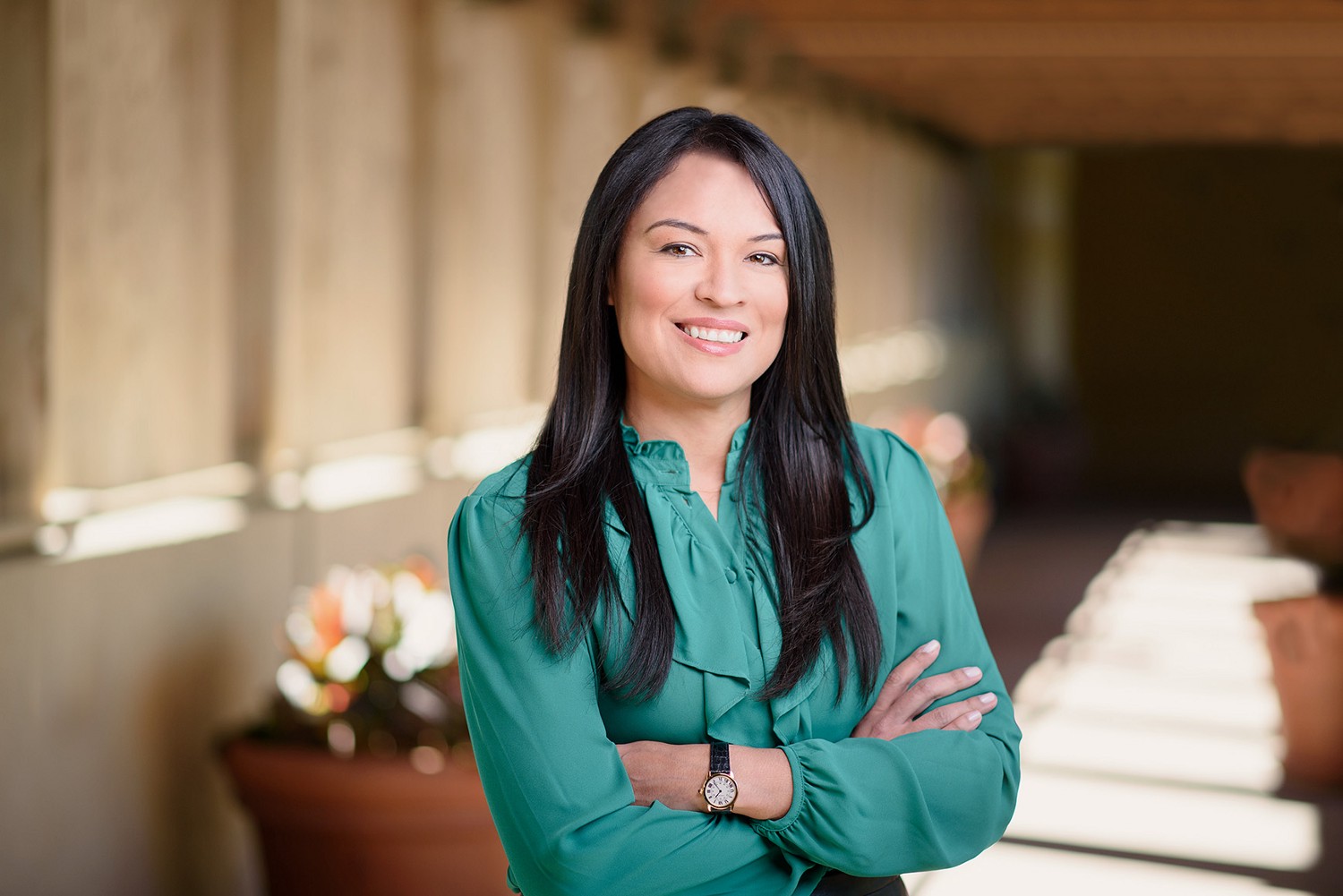“My parents placed the utmost emphasis on education while we were growing up and did everything they could to ensure we had access to the best schools. They encouraged us to attend graduate school and explore the world. My degree in international Business allowed me some incredible opportunities in my career and I would love to see the same for all young women. There is a major emphasis on STEM curriculum in this country and my hope is that more women will enter banking and finance careers as a result. My educational background and ability to adapt to many different types of situations have helped me tremendously in my career and I would love to pay that forward.”
I had the pleasure to interview Leslie Smith, managing director for Commercial Direct. Leslie led the launch of Silver Hill Funding in 2016, and is building on that experience to spearhead the launch of the consumer-facing direct lender, Commercial Direct. An experienced financial services professional and thought leader with more than 20 years in the industry, she has been instrumental in leading multiple initiatives that expanded companies into international markets, as well as developing systems and programs to drive operational productivity and efficiency.
Thank you so much for doing this with us! What is your “backstory”?
I was actually born in Brooklyn and moved to Miami during the most awkward time in my life — my freshman year in high school. The shock of that move gave me the ability to find humor in most things. It also taught me never to take myself too seriously. Ever. I grew up in a Spanish-speaking household since my family is from Colombia. It helped me pivot and adjust to different situations pretty quickly, and move between different cultures with ease.
Can you share the funniest or most interesting story that happened to you since you began leading your company?
I was ready to make one of my first senior manager hires when launching Commercial Direct. I have always been a firm believer that people and culture are at the heart of a company and they are a major area of focus for me. When making this hire they were perfect on paper, but something told me it wasn’t the right fit. Three months later my gut proved to be right. I came into the office and this manager was curled up under their desk in the midst of a complete nervous breakdown. It wasn’t a good fit for this person either. Really thinking through hires and ensuring they fit with your core values and culture is critical for success.
What do you think makes your company stand out during these disruptive times? Can you share a story?
People want things how they want them and they want them fast. That’s why we created Commercial Direct. Business owners and investors can get commercial mortgages on their own terms. They want speed, transparency, and self-service options, even on the smaller loans that traditional lenders often overlook. We never stand still. We always ask why and we think we know our industry better than anyone else.
What advice would you give to other CEOs or founders to help their employees to thrive?
I love what Bill Gates said: Your most unhappy customers are your greatest source of learning. We are comfortable with feedback and seek it after every deal. We hold roundtable discussions with our customers on a regular basis. If a deal falls out we want to know why so we can consider tweaking our program and adjusting our process for reviewing assets and borrowers. We learn from our mistakes and use challenges as opportunities to learn. When you create a culture of constant learning, employees are open to finding new pathways to success.

None of us are able to achieve success without some help along the way. Is there a particular person who you are grateful towards who helped get you to where you are? Can you share a story or example?
As a first generation American, watching my parents and local community adapt as adults to this country provided an education in adaption, resilience and creativity. America is a wonderful place but it can be scary and overwhelming. My parents came here not knowing the language and made it work. If they could do it then so could I. And I did.
Can you share what you believe will be the “Top 5 Fintech and Banking Trends Over The Next 3 Years” (Please share a story or example for each.)
- Technology is the great equalizer for small firms competing with the behemoths in their market. In the coming years, startups and other scrappy organizations will continue to increase market share by playing to their strengths and leveraging partnerships with each other to fill gaps in their proficiencies. This is perhaps most evident in the banking sector, where we’re seeing community banks automate operational processes and implement artificial intelligence to meet customer service needs. These tactics allow organizations like ours to stay nimble as they work to grow their core businesses.
- Financial institutions are intrigued by advances in blockchain technology — and the mortgage industry is no different. For example, the increased transparency blockchains provide can be applied to a property’s ownership history. In the next few years, lenders have an opportunity to leverage blockchain technology to more easily get property ownership information, as well as any outstanding tax liens that may exist. Financial institutions also have the opportunity to incorporate blockchain technology into their due diligence practices. The centralized nature of blockchains can help organizations review historical records and transactions without having to duplicate the efforts of others.
- Speed matters in the mortgage industry, and fintech companies are beating lenders at their own game. In the next few years, traditional lenders will work to replicate the processes their fintech competitors have introduced to the market. The impact of this shift will most clearly be felt in the time it takes to close a mortgage loan. By adopting basic automation initiatives and relying on AI to handle the more repetitive underwriting tasks, lenders like us can significantly reduce transaction length and fund more loans each month.
- Following the fintech players’ example by reducing inefficiencies and strategically automating processes will help mortgage lenders increase their processing volumes over the next three years. Meanwhile, fintech lenders will study traditional lenders’ example as they work to expand their product offering and grow in a regulated environment. This relationship will benefit both types of institutions — but the primary beneficiaries should be the borrowers themselves. In the coming years, we may be seeing a greater percentage of prospective borrowers get approved thanks to new underwriting techniques. And those who are approved should be experiencing speedier transactions.
- Advances in artificial intelligence machine learning will continue to change the way lenders underwrite mortgage loans. Financial institutions are only just beginning to understand how these tools can help them analyze data from a diverse set of sources and better inform them of a prospective borrower’s creditworthiness. In the next three years, a greater number of banks and alternative lenders will determine prospective borrowers’ ability to repay a loan not only through tax returns and credit information, but also through social media accounts history, geographic location data, and other digital sources. Lenders hope these advancements will give them a more accurate view of borrower creditworthiness and more justification for approving a greater number of borrowers who may not have appeared creditworthy through traditional underwriting methods.
Can you please give us your favorite “Life Lesson Quote”?
Success is a lousy teacher. It seduces people into thinking they can’t lose.
You are a person of great influence. If you could inspire a movement that would bring the most amount of good to the most amount of people, what would that be? You never know what your idea can trigger. 🙂
My parents placed the utmost emphasis on education while we were growing up and did everything they could to ensure we had access to the best schools. They encouraged us to attend graduate school and explore the world. My degree in international Business allowed me some incredible opportunities in my career and I would love to see the same for all young women. There is a major emphasis on STEM curriculum in this country and my hope is that more women will enter banking and finance careers as a result. My educational background and ability to adapt to many different types of situations have helped me tremendously in my career and I would love to pay that forward.
Originally published at medium.com


